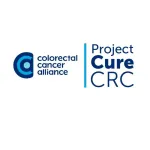(Press-News.org) The International Vaccine Institute (IVI), an international organization with a mission to discover, develop, and deliver safe, effective, and affordable vaccines for global health, and the Ministry of Health of Rwanda announced today that IVI will open its Africa Regional Office in Kigali this year. The IVI Board of Trustees (BOT) confirmed Rwanda as the location for IVI’s Africa Regional Office at a meeting in February, following a detailed evaluation of proposals from five countries to host the regional office.
Dr. Jerome Kim, Director General of IVI, said: “We are thrilled to announce the decision to establish IVI’s Africa Regional Office in Rwanda. This new office will play a pivotal role in providing on-the-ground support and leadership for IVI’s work in Africa, increasing IVI engagement and coordination with African stakeholders, and establishing stronger partnerships around training for vaccine R&D, manufacturing, and policy. We look forward to joining the growing ecosystem of vaccine R&D partners on the continent and continuing our work with local and regional collaborators to support sustainable vaccine manufacturing. IVI’s regional office in Africa has found an excellent home in Kigali and we are proud to have the support of the Rwandan Ministry of Health and the University of Rwanda, which will be an critical technical partner.”
Dr. Sabin Nsanzimana, Rwanda Minister of Health, said: Rwanda is taking a leap in bridging the vaccine equity gap on the African continent by venturing into local production of vaccines, therapeutics and other life-saving medical products. Hosting the IVI Africa regional office is yet another milestone towards a resilient Africa with regard to potential public health emergencies and we are honored to serve as its host. We are committed to continuing this important partnership with IVI and to initiating similar collaborations in the future.”
During its inaugural meeting in October 2023, the IVI Global Council, a representative body composed of IVI State Parties, unanimously endorsed IVI’s intention to build up its presence in Africa and recommended to the BOT a continental approach that bridges vaccine research, development, and training with sustainable manufacturing as its final objective. The establishment of the IVI Africa Regional Office reflects a strategic focus on international expansion with the aim of bolstering IVI’s global health impact.
As the administrative focal point in the region, the office will represent IVI in Africa, expanding its member base and engagement. As an implementing partner in the regional vaccine ecosystem, the office will particularly emphasize clinical trial training capacity while pursuing and facilitating joint grant applications with local partners to invigorate vaccine research, development, innovation, and collaboration in Rwanda and beyond.
IVI is headquartered in Seoul, Republic of Korea with a Europe Regional Office in Sweden and a Country Office in Austria.
###
About the International Vaccine Institute (IVI)
The International Vaccine Institute (IVI) is a non-profit international organization established in 1997 at the initiative of the United Nations Development Programme with a mission to discover, develop, and deliver safe, effective, and affordable vaccines for global health.
IVI’s current portfolio includes vaccines at all stages of pre-clinical and clinical development for infectious diseases that disproportionately affect low- and middle-income countries, such as cholera, typhoid, chikungunya, shigella, salmonella, schistosomiasis, hepatitis E, HPV, COVID-19, and more. IVI developed the world’s first low-cost oral cholera vaccine, pre-qualified by the World Health Organization (WHO) and developed a new-generation typhoid conjugate vaccine that is recently pre-qualified by WHO.
IVI is headquartered in Seoul, Republic of Korea with a Europe Regional Office in Sweden, a Country Office in Austria, and Collaborating Centers in Ghana, Ethiopia, and Madagascar. 39 countries and the WHO are members of IVI, and the governments of the Republic of Korea, Sweden, India, Finland, and Thailand provide state funding. For more information, please visit https://www.ivi.int.
END
IVI to open Africa Regional Office in Rwanda
2024-02-27
ELSE PRESS RELEASES FROM THIS DATE:
Imaging grain boundaries that impede lithium-ion migration in solid-state batteries
2024-02-27
1. A NIMS research team has developed a new technique to image grain boundaries obstructing lithium-ion migration in solid-state batteries—a promising type of next-generation battery.
2. Solid-state batteries—next-generation rechargeable batteries—are intended to be safer and have higher energy densities than conventional lithium-ion batteries by replacing liquid organic electrolytes with solid electrolytes. A major issue in current solid-state battery R&D is the obstruction of ...
ReadCube expands its award-winning literature management platform with the launch of Literature Review
2024-02-27
Digital Science is pleased to announce that ReadCube, an award-winning leader in literature management and full-text document delivery, has launched a new solution for research-driven organizations – known simply as Literature Review by ReadCube.
Literature Review seamlessly integrates with ReadCube's premier literature management platform, trusted by over 650 research organizations globally. Known for its best-in-class user experience and robust literature workflows, ReadCube's newest solution delivers a turnkey end-to-end workflow for teams tasked with monitoring and analyzing published literature related ...
Determine stroke risk at an early stage using tear fluid, mitochondria and AI-based data
2024-02-27
Every year, over 100 million people worldwide suffer a stroke. Ischemic strokes (cerebral infarction) are the most common, but they can also occur "silently" and therefore often go undetected. This can result in serious illnesses such as dementia, depression or even suicide. In order to determine the risk of stroke at an early stage, Prof. Dr. Olga Golubnitschaja, head of the research group for 3P (predictive, preventive and personalized) medicine at the University Hospital Bonn (UKB), together with the University of Bonn and other authors from 25 institutions from 11 countries, has developed a holistic approach to health ...
Researchers look at environmental impacts of AI tools
2024-02-27
OAK BROOK, Ill. – As artificial intelligence (AI) is increasingly used in radiology, researchers caution that it’s essential to consider the environmental impact of AI tools, according to a focus article published today in Radiology, a journal of the Radiological Society of North America (RSNA).
Health care and medical imaging significantly contribute to the greenhouse gas (GHG) emissions fueling global climate change. AI tools can improve both the practice of and sustainability in radiology through optimized imaging protocols resulting in shorter scan times, improved scheduling ...
New consortium MetrANOVA to create a measurement and analysis toolbox for research and education networks worldwide
2024-02-27
February 27 — Five of the world’s leading research and education (R&E) networking organizations have joined forces to form MetrANOVA, a consortium for Advancing Network Observation, Visualization, and Analysis. Together, founding members Energy Sciences Network (ESnet), GÉANT, GlobalNOC at Indiana University, Internet2, and Texas Advanced Computing Center (TACC) operate and connect a dizzying number of national, regional, and local R&E networks — yet representing a portion of the decentralized fabric linking scientific researchers in hundreds of countries ...
Drug-resistant tuberculosis responds rapidly to bedaquiline-based second-line therapy
2024-02-27
Patients who have drug-resistant tuberculosis (TB) have a similar microbiological response to bedaquiline-based second-line medications as patients with drug-sensitive TB taking first-line regimens, according to researchers at Weill Cornell Medicine in New York and GHESKIO Centers in Haiti. Second-line medications are those that are given when one or more of the drugs given first for the disease are not effective. The research could have implications for shortening the duration of treatment for drug-resistant TB, which currently ...
Colorectal Cancer Alliance announces Request for Proposals (RFP) as it launches the largest-ever CRC research investment totaling tens of millions
2024-02-27
In an effort to expedite its life-saving work, the Colorectal Cancer Alliance (Alliance) Project Cure CRC initiative is excited to open its Request for Proposals (RFP). Tens of millions of dollars will be available to researchers from around the world whose work aims to expedite colorectal cancer (CRC) research to a curable science. Beginning March 1, the program is accepting applications for one to three-year projects from qualifying professionals at research-based institutions and private companies. Priority will be given to proposals that focus on high-risk/high-reward projects to accelerate new CRC therapies and technologies from bench to bedside.
The ...
Reaching federal youth sport participation goal could save US billions of dollars
2024-02-27
First-of-its-kind study suggests increasing the percentage of youth in the United States who participate in sports to meet a Healthy People 2030 goal could improve children’s physical and mental health and save $80 billion.
Achieving the Healthy People 2030 youth sports participation goal could save the United States $80 billion in direct medical costs and productivity losses and deliver over 1.8 million more quality years of life to Americans, according to a study that will be published on Feb. 27 in the American Journal of Preventive Medicine.
Every decade since 1980, Healthy People has provided science-based, 10-year national objectives and ...
Improving lithium-sulfur batteries with metal organic framework-based materials
2024-02-27
Current lithium-ion battery technology does not have the energy density necessary to meet the demands for renewable energy. In theory, lithium-sulfur batteries could be a viable alternative with a higher specific capacity and energy density. However, sulfur has disadvantages that currently limit its practical adoption.
A comprehensive review published in Nano Research on February 8 outlines how metal organic frameworks-based cathode materials could improve the performance of lithium-sulfur batteries, making them a practical alternative to lithium-ion batteries.
“The ...
An alternate arrangement: how a propeller-shaped isomer can improve organic solar cells
2024-02-27
Imagine technology as a race car speeding down a track – it can only go as fast as its engine allows. But just when it seemed like organic solar cells hit a roadblock, along comes 3PNIN, a game-changing molecule shaped like a propeller, ready to turbocharge their progress and break through barriers.
Organic solar cells (OSCs) represent the pinnacle of renewable energy, yet certain components have fallen significantly behind the trajectory of ongoing development. Particularly, cathode interfacial materials (CIMs) have failed to sustain ...







